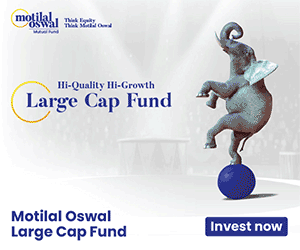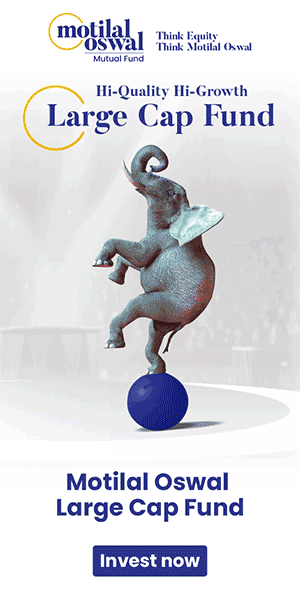When does Investing in Stocks Become Trading

If you want to invest in stocks, you should be well-versed with all the terminologies of the subject. You should know that investing in stocks means setting aside some money for investment so that you are rewarded with a huge profit in the future. It is like keeping money reserved to receive more inflow of money.
You have to have a beginning, and for that, you have to learn how to start as an investor. Your goal will be to maximize your return while keeping the cost low. It is said that investing is an art of putting your money to an activity with a desire to obtain profit. The process involves earmarking some capital for letting it grow in the coming times. But, you may encounter losses as well in the process. Stock market trading is the first and easiest step for a novice to learn how to do investment and earn a profit.
Key aspects you should know
One should know that investing and trading are two different approaches and methods of gaining profit in the financial market. Investors have a larger time horizon within which they seek to make profits by dint of holding money invested for a long period of time. Traders have different methodology. They make use of the wavy market to utilize the rise and fall in the market. They know their entry and exit timings well and make frequent profits within a shorter time frame.
An investor’s goal is to create wealth over a long period of time. During this extended period, he buys or holds a portfolio of stocks, mutual funds, bonds and other instruments of investment. If you are an investor, it may take years or even decades for you to make use of interest hikes and falls, dividends, and other such ways of earning profits. Investors are usually not shaken by the market’s upheavals because they know that a falling market will rebound and they will regain the losses they have made during the journey. Investors are more concerned about market fundamentals. An investor may have a long horizon before him such as his days of retirement.
Stock trading and day trading
As it has already been stated, trading involves frequent buying and selling of stocks, commodities, currency, or other financial instruments. There are certain key elements to stock trading. A stock trader buys and sells stocks frequently. Trading has types and they are as follows:
Active trading is a way where the investor has a number of stocks with him and he trades in them per month. They are in the lookout of the events in the market which may be short-term. They try to make a profit during these fluctuating events in the market.
Day trading employs a very different strategy. The investor buys, sells and closes his position in stock during a single day. They are not much bothered about the fundamentals of the market. They are interested in making a few hundred or thousands in an hour or so. It all depends on the volume of fluctuation in the stock market.
Hence, an investor can turn into a trader by shrinking his time horizon and by changing his strategy of dealing in the stock market. Gradually, an investor comes to know about the ins and outs of stock market trading. While an investor might be content making a yearly income of 10 to 15%, a stock trader expects to earn the same percentage gain each month. This is a fundamental difference between an investor and a trader. Both investors and a trader can utilize the availability of online stock.
Some Notable Points
One should be able to differentiate between “share” and “stock”. Stock is a generic term which means a little ownership of one or more companies. A share is more specific; you may have shares in a particular company or a mutual fund. It refers to the ownership of a particular company.
People who are investment professionals often use words such as value stocks, large-stock, small-sector stock, blue chip stock, IT sector stock and so on. What they mean is the companies that these stocks belong to, not the stocks themselves.
A share is the smallest denomination of a stock that belongs to a company. There are two types of shareholders. Preferred shareholders don’t have voting rights but they have one advantage over Common shareholders. Preferred shareholders are the ones who will be repaid on a priority basis in the event of the company going bankrupt. Also, dividends are guaranteed to preferred shareholders but it is not so with common shareholders.
What you should do
Share trading can be profitable for you if you have understood the fundamentals of it. You can’t be a share trader overnight. You’ve got to do a lot of studies about the financial market, stocks, shares, different types of financial instruments, analysis of the market, a lot of key terms related to stock and share market, and so on. The best way for a beginner to succeed in this field is through a lot of research.
You have to research the best pick among the stocks before you decide on buying or selling them. To begin with, one should be as conservative as possible. One should avoid trading in volatile instruments. You have to set a profit margin for yourself and you will stop trading as soon as you reach the optimal margin. This is all the more important to prevent the chances of making losses. All you need is a restraint on your temptations and greed and base your decision on your research and information.
There is a difference in a trade-off between an investor and a trader. You can begin as an investor having a longer time horizon. You look at yearly gains in percent and you principally base your decisions on the fundamentals of the economy and the market. After gaining some experience in the financial market and having some exposure to selling and purchasing of shares in the long term, you may turn your attention to short-term gains. You will gain expertise in fixing your margins in a monthly or weekly trade cycle.
Mutual Fund Investments are subject to market risk, read all scheme related documents carefully.
Queries
-
What is the benefit of mutual fund STP
Aug 29, 2019
-
How much to invest to meet target amount of Rs 2 Crores
Aug 26, 2019
-
Can I achieve my financial goals with my current mutual fund investments
Aug 24, 2019
-
Can you tell me return of various indices
Aug 19, 2019
-
What would be the post tax return on different investments
Aug 18, 2019
-
Which Principal Mutual Fund scheme will be suitable for my retirement corpus
Aug 16, 2019
-
What is the minimum holding period for availing NCD interest
Aug 4, 2019
Top Performing Mutual Funds
Recommended Reading
Fund News
-
Edelweiss Mutual Fund launches Edelweiss BSE Internet Economy Index Fund
Apr 25, 2025 by Advisorkhoj Team
-
Bajaj Finserv Mutual Fund launches Bajaj Finserv Nifty 50 Index Fund
Apr 25, 2025 by Advisorkhoj Team
-
SBI Mutual Fund launches SBI Income Plus Arbitrage Active FOF
Apr 23, 2025 by Advisorkhoj Team
-
Motilal Oswal Mutual Fund launches Motilal Oswal Infrastructure Fund
Apr 23, 2025 by Advisorkhoj Team
-
Groww Mutual Fund launches Groww Gilt Fund
Apr 23, 2025 by Advisorkhoj Team













